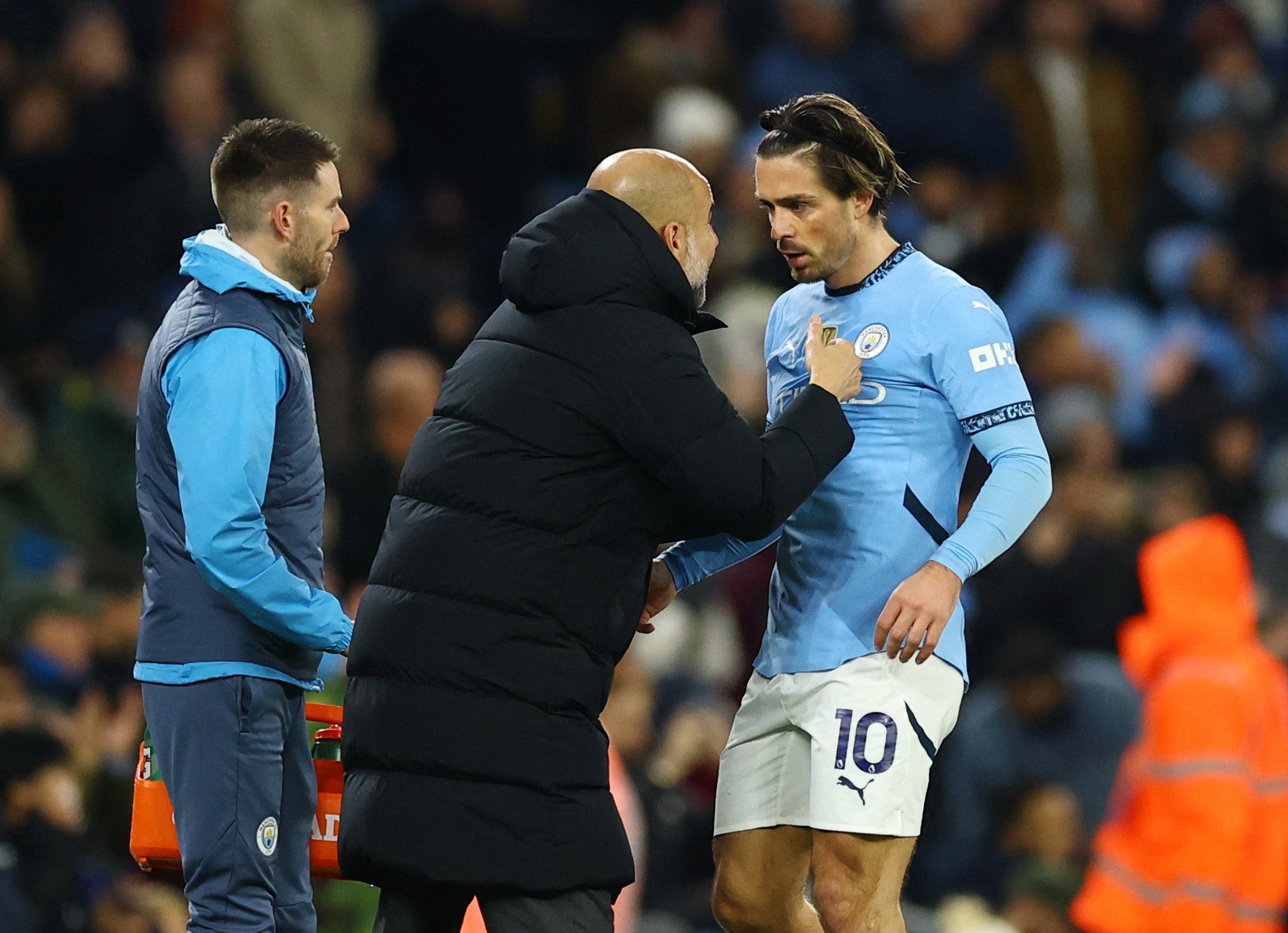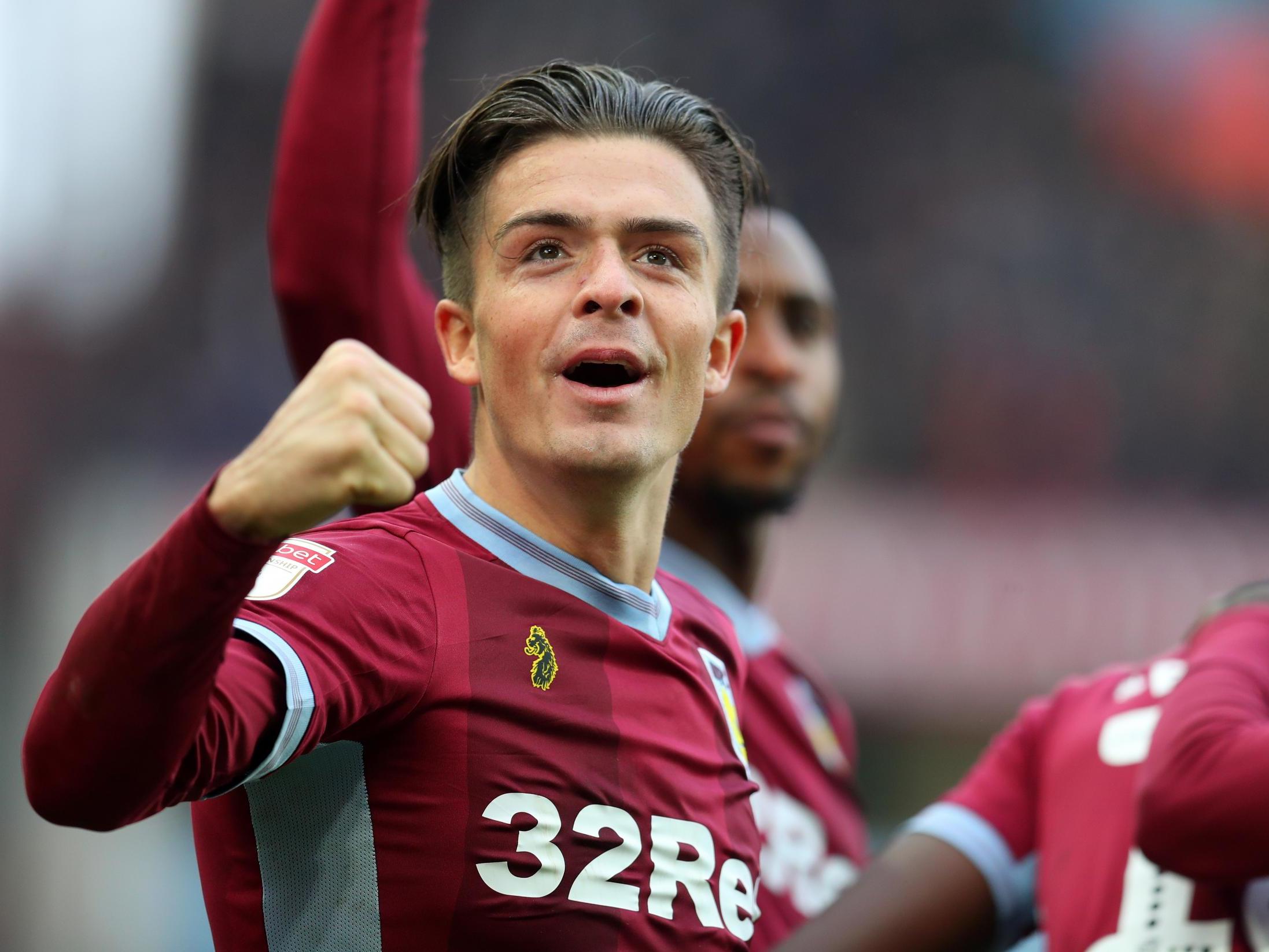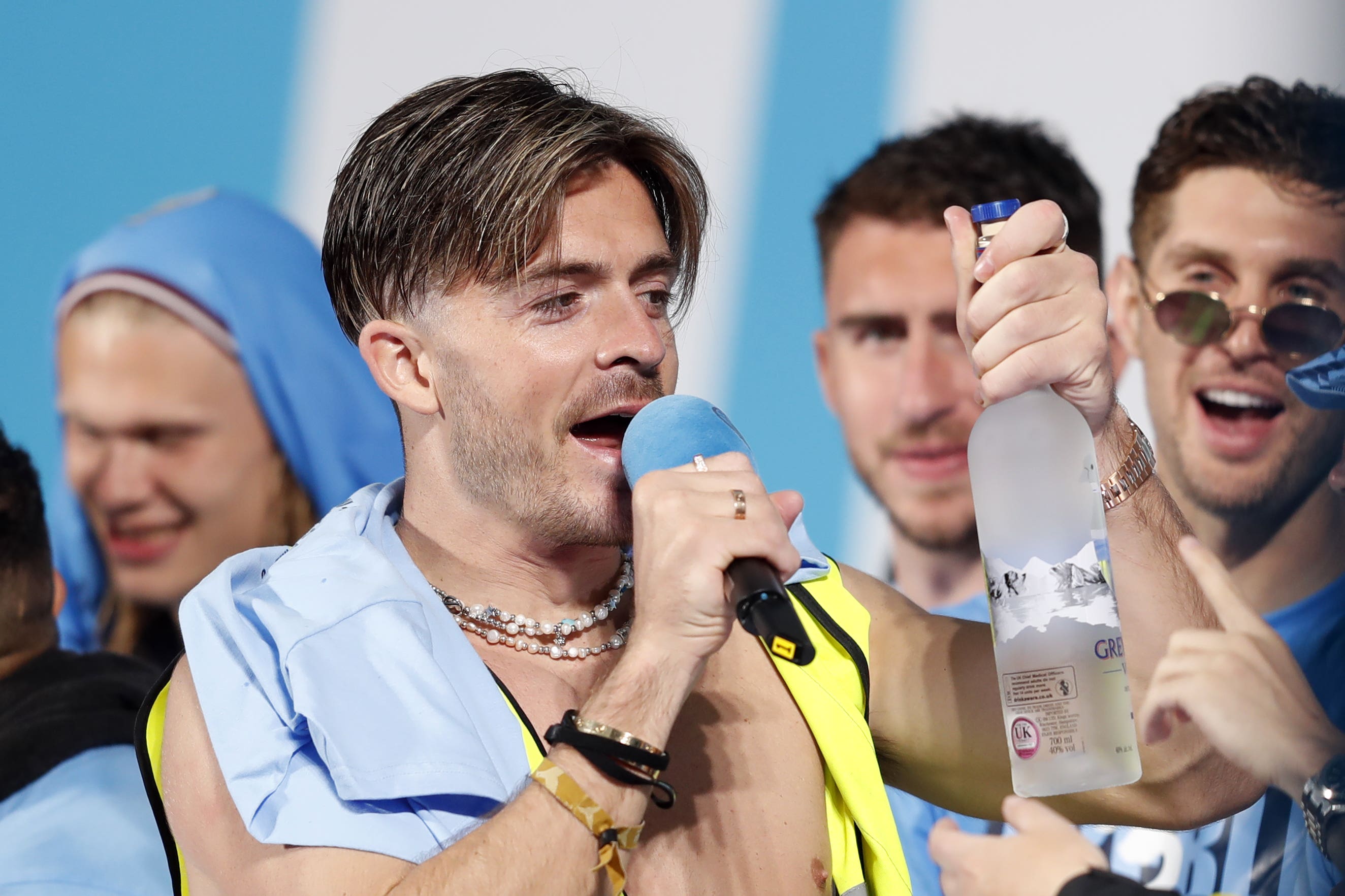Txiki Begiristain was looking forward to being entertained. Manchester City, often dubbed big spenders, had spent more than any other English club previously had on one player. They had made Jack Grealish the £100m man. Their director of football called his costliest recruit “one of the most exciting attacking players in world football”.
Three-and-a-half years later, Grealish returns to Aston Villa on Saturday as, arguably, neither an attacking player nor an exciting one. Instead, a maverick has been reinvented as a curiosity, a Pep Guardiola project who now does far fewer of the things often associated with excitement – score goals, make them, run at defenders – than he used to. There are those at Villa Park who will recognise a local accent and see a familiar face. But the player they might see is rather different.
A more successful one, Guardiola may argue, an individualist who became part of a champion team. Grealish may have sacrificed some of the flair, but he got silverware in return. In the glow of the treble, it seemed a fine trade-off. Now? Perhaps not.
Grealish has been at City since August 2021. He has only played particularly well for one of those seasons, 2022-23. Last year, he found form for a month, from the end of December, and around 10 days in spring. His form otherwise explained his omission from England’s Euro 2024 squad. He may have been luckless with ill-timed injuries this season and the statistics again show City lose a lower percentage of games he starts, but his recent achievements end there.
And the glimpse of his beloved ground may remind Grealish, the great-grandson of a 1905 Villa FA Cup winner and the Brummie who captained them to promotion, of what he is missing out on. Sold long before Unai Emery was appointed, Grealish was not to know what would happen in his absence, but the thought must have crossed his mind that he could have still been there, skippering them in their Champions League win over Bayern Munich.
Instead, while none of the three players signed with the proceeds of his sale – Danny Ings, Leon Bailey and Emi Buendia – has exactly been an unqualified success, the £100m fee gave Villa the leeway within PSR to spend on other contributors to their rise. Villa have made their missteps in their attempts to replace him – Steven Gerrard’s reunion with Philippe Coutinho was an expensive mistake – but the Midlander who has been a recent revelation as their No 10 is Morgan Rogers.

If Grealish traded a free role at his hometown club for more disciplined duties when chained to the touchline by Guardiola, he has swapped life as an automatic choice at Villa for a more uncertain status now at City. After a difficult first year at the Etihad Stadium, he established himself in the first-choice side. Now their current slump puts everything into question: his weaknesses – a lack of productivity – has become more of an issue. Grealish used to begin most big games. This year he started on the bench against Arsenal, Tottenham, Liverpool and Manchester United.
A sight of him on the Villa Park pitch would feel doubly surprising. City have been there three times since his sale and Grealish has played a grand total of three minutes as a substitute. He was banned for last December’s trip, a needless fifth yellow card of the campaign coming for kicking the ball away a couple of minutes after coming on against Spurs. When City lost to Villa, that suspension came at a cost.
To borrow from Begiristain’s initial description, Grealish has been more exciting off the pitch than on it; another who made the move from Villa to Manchester and then won a treble, Dwight Yorke, asked for a year off. Epic as Grealish’s celebrations seemed, he did not make the same request. But in the subsequent 18 months, he has done far too little on the pitch.
When he succeeded, it was as a foil. In the recalibration of a team with potent wingers to one that serviced Erling Haaland, he mustered a mere five goals in 50 games in the treble season. But Julian Alvarez, Riyad Mahrez, Phil Foden, Ilkay Gundogan and Kevin de Bruyne all joined the Norwegian in double figures; for good measure, the Belgian got 29 assists.
Now Alvarez and Mahrez are gone and Foden and Gundogan have stopped scoring. When Foden, Gundogan, De Bruyne, Bernardo Silva, Jeremy Doku and Savinho have a combined total of three league goals, it matters that Grealish has none. He has found the net twice for Lee Carsley this season but has none for Guardiola in all competitions. He has become the least dangerous of all City’s attacking midfielders. The free spirit has become unadventurous and uncreative. City have become over-reliant on Haaland, desperate for a midfielder who can make such a decisive impact.


But Grealish has just two assists in the Premier League since the start of last season (Doku, more of a wildcard of a dribbler on the left, had one match where he recorded four himself). That impotence used to be camouflaged by others. At least one of City’s two biggest buys has proved more prolific than expected: the problem is that, since he arrived, the defender Josko Gvardiol has delivered three goals for every one Grealish has mustered, outscoring him 9-3. In the same time, Rico Lewis has been directly involved in more goals.
And so to revisit Begiristain’s 2021 verdict. “Pep loves the way he plays, and we all feel he is an ideal fit for Manchester City,” he said. But Guardiola has changed Grealish, and for the worse. A likeable lad, has been shorn of the characteristics that made him a crowd-pleaser. Guardiola has made him better at retaining possession, a skill he sought to utilise when he played in central midfield away at Juventus. But that was a short-term fix. Now City face a long-term problem.
At 29, Grealish is part of their age concern. He has two-and-a-half years left on his contract. He is also probably unsellable, given his huge salary. A return to Villa could have a romantic appeal but do they – or, say, West Ham or Tottenham or Newcastle – have any need for a player on a superstar’s salary who might score three goals a season and who has had three underwhelming seasons in four?
So, for the second time, City face making a vast loss on a British record signing acquired from a Midlands club. They paid an inexplicable £1,437,500 for Wolves’ Steve Daley in 1979 and recouped just £300,000. The price was about 70 times higher when Grealish moved, the return of a Champions League title altogether greater. But if there will be a significant financial loss when he goes, there is already a footballing loss. Grealish is no longer the entertainer.







